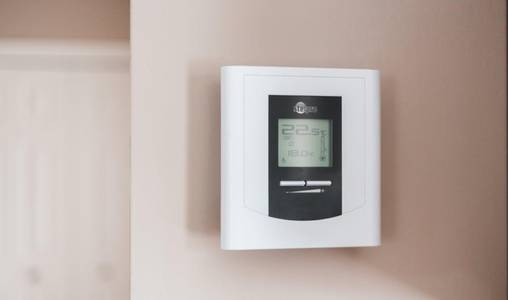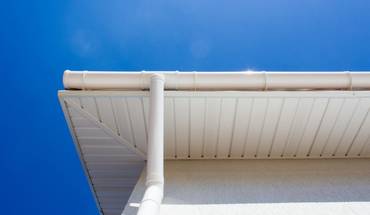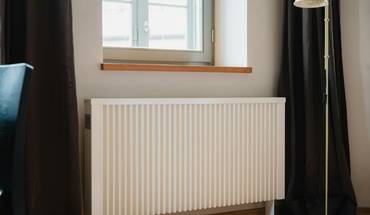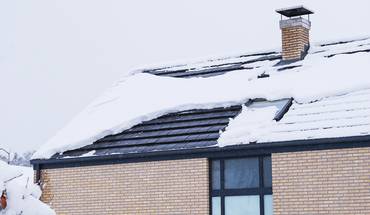Winter comes around every year, probably quicker than you think. So, it’s a good time to be thinking about how to make your home more energy-efficient this winter. There’s really no harm in preparing early.
With winter comes the inevitable spike in heating bills. But with a few simple steps, you can improve your home's energy efficiency and reduce your heating costs. Not only will these tips save you money, but they can also help minimise the effects of energy consumption on the environment.
Understanding Energy Efficiency
What is Energy Efficiency?
Energy efficiency is the practice of using the least amount of energy possible to achieve the result you want. It includes operating devices and systems more intelligently to reduce energy waste and the environmental impact. When it comes to home heating, think in terms of keeping your home warm using the least amount of energy possible. This not only saves money but also reduces greenhouse gas emissions and the demand for energy.
The Benefits of Energy Efficiency
The benefits of being more energy efficient are multiple:
⦁ Reduced Energy Bills: Lower energy consumption can lead to significant savings on your heating bills.
⦁ Lower Environmental Impact: Using less energy reduces your carbon footprint and helps combat climate change.
⦁ Increased Comfort and Home Value: A well-insulated and energy-efficient home is more comfortable and can increase your property value.
Conduct an Energy Audit to Check If You Are Energy Efficient This Winter
A good place to start is having an overall ‘health check’ for your home. Look for drafty windows and doors, windows with cracks in and underperforming heating. A few tweaks can make all the difference.
Improve Your Home Insulation
A home needs a certain amount of airflow, especially if it’s older. Condensation can quickly build up in older homes where there’s no airflow leading to mould and mildew inside, which is harmful to health.
But proper insulation keeps your home warm in the winter and cool in the summer, reducing energy consumption and improving comfort. It also helps eliminate drafts and cold spots in your home.
Insulating Your Home
When it snows you’ll see some roofs covered in snow. Others seem to be free of snow. Assuming there are no trees in the way, the ones that have little or no snow are poorly insulated and heat is escaping through the roof, melting the snow as it does so.
Insulation is probably most closely associated with loft spaces and adding better or more insulation to your attic and roof is one of the most effective ways to improve energy efficiency.
Insulating exterior walls also helps maintain a consistent indoor temperature. Insulating the floors above garages, basements, and crawl spaces can also prevent heat loss.
Loft insulation is often fairly straightforward to install, but cavity wall or internal wall insulation often requires a professional. Done improperly, cavity wall insulation can actually cause damp. So, always seek advice from a professional.
Sealing Air Leaks
Common Sources of Air Leaks
Draughty windows and doors, gaps around loft hatches and recessed light fixtures are common sources of heat loss. They can each have unwanted gaps around them that let warm air escape. Some might be a quick DIY fix, others might need the services of a professional glazier.
For small gaps, you can use weatherstripping to seal spaces around windows and doors. Caulk can be used to seal small cracks and holes.
If your pane of glass is cracked then call a professional glazier to replace it. Where you have large gaps around windows or doors, it’s worth speaking to a professional too. The door or window might have dropped creating the gap and this will need a professional’s touch. Also, if the gap is too large and you overdo the weatherstripping, it can damage the locking mechanism by forcing the door or window out of position.
Optimising Your Heating System
Your heating system is probably the single most important thing in keeping your home warm and energy efficient.
Regular maintenance is crucial for keeping your heating system running efficiently. So don’t forget to schedule annual heating system services to keep your system in good working order.
Things like regular boiler services not only make your boiler more efficient, but they are also important in keeping your warranty up-to-date. It’s important from a safety perspective too, that any gas appliance is checked regularly by a professional.
Programmable or smart thermostats allow you to control your heating schedule and adjust the temperature based on your needs. This can help you make significant energy savings, especially when you’re not at home. You can turn your heating on through an app just before you get home, for example.
Similarly, zone heating allows you to heat only the occupied areas of your home, reducing energy consumption and costs. Consider installing zone valves or ductless mini-split systems for more targeted heating.
Some of the smart systems are designed to conserve energy, with sensors that detect when you’re home, for example, so they will automatically turn lights and heating on and off when you enter or leave or when you need them.

Problem Window or Door? We’re On Our Way
Glazing, Emergency glass repair and boarding up, 24/7.
Call Our Glazing Experts For A Free QuoteMaking Use of Natural Heat and Light
Upgrading to Energy-Efficient Appliances and Fittings
Maximising Natural Warmth
Take advantage of the sun’s natural heat by opening curtains and blinds on south-facing windows during the day. This allows sunlight to enter and warm your home. Close curtains at night to reduce heat loss.
Choosing Energy-Efficient Window Solutions
Thermal and insulating curtains and blinds can help keep your home warm in winter (and cool in the summer). Curtains are also good for reducing drafts.
Energy-Efficient Appliances
If you have the budget, upgrading to better energy-rated appliances can significantly reduce your energy consumption and costs. A is the best energy efficiency, while G is the worst (some older models use the A+++ to G system. The ratings aren’t equal, with an A+++ equivalent to B or C on the newest scale). Better-rated appliances are designed to use less energy without sacrificing performance.
Efficient Lighting Solutions
Switching to LED bulbs and energy-efficient lighting fixtures can lower your electricity bills and reduce heat output, making your home more comfortable during the winter months.
Additional Tips for Energy Efficiency
Using Ceiling Fans
Reversing the direction of your ceiling fans in the winter can help circulate the warm air throughout your home. If you have a fan with a reverse setting, set your fans to rotate clockwise to push warm air down from the ceiling.
Water Heater Efficiency
Insulating your water heater and lowering the temperature setting can reduce energy consumption and save you money on your heating bills.
Final Thoughts
By thinking about some of these suggestions and taking a look at where your energy consumption could be improved, you can make your home more energy-efficient this winter. You’ll save money on your heating and electricity bills and do your bit to reduce your environmental impact. From sealing air leaks and upgrading appliances, there are plenty of ways to improve your home’s energy efficiency and each one helps a little.
Need a window or door looked at or your heating system maintenance scheduled?
Call us on 0330 108 4111






